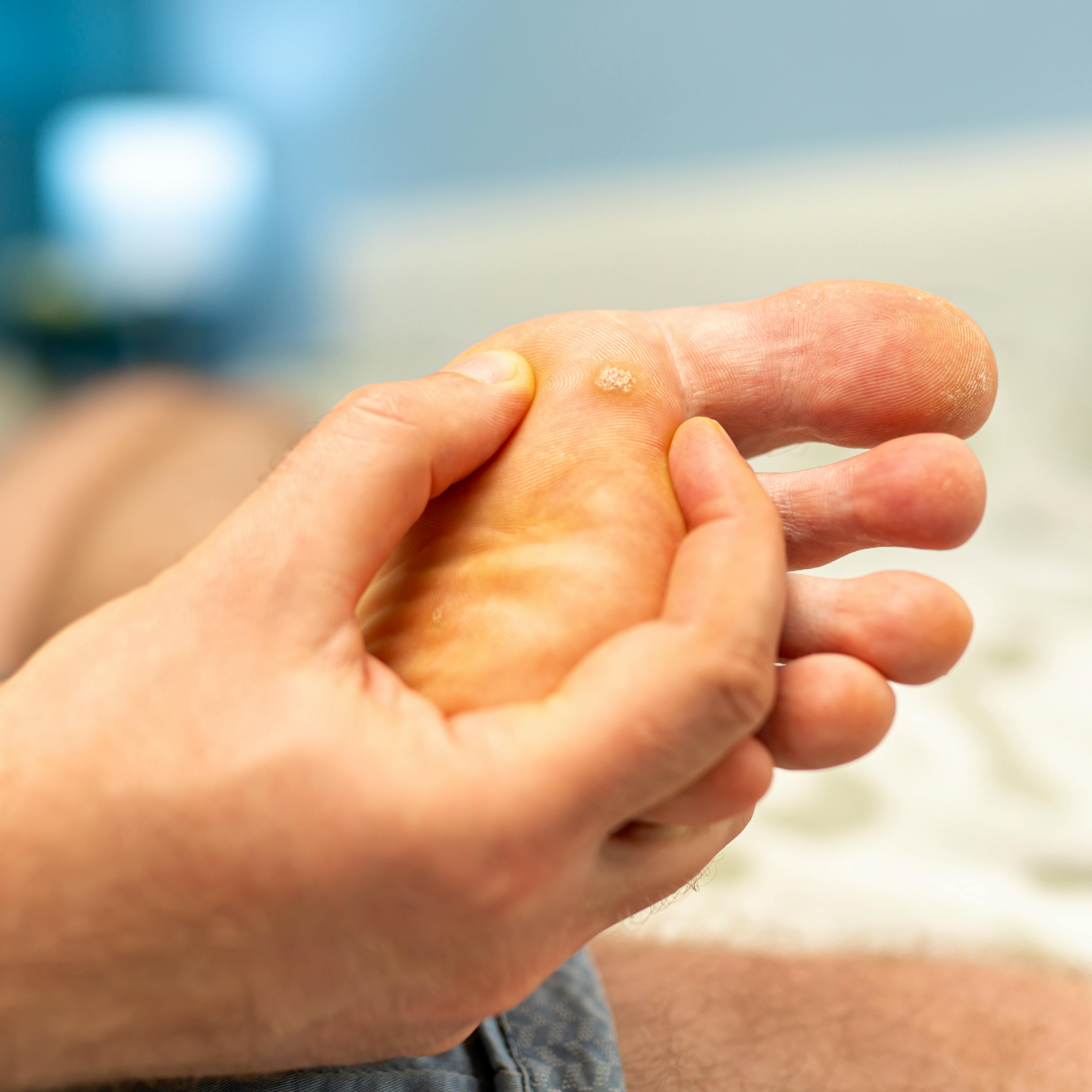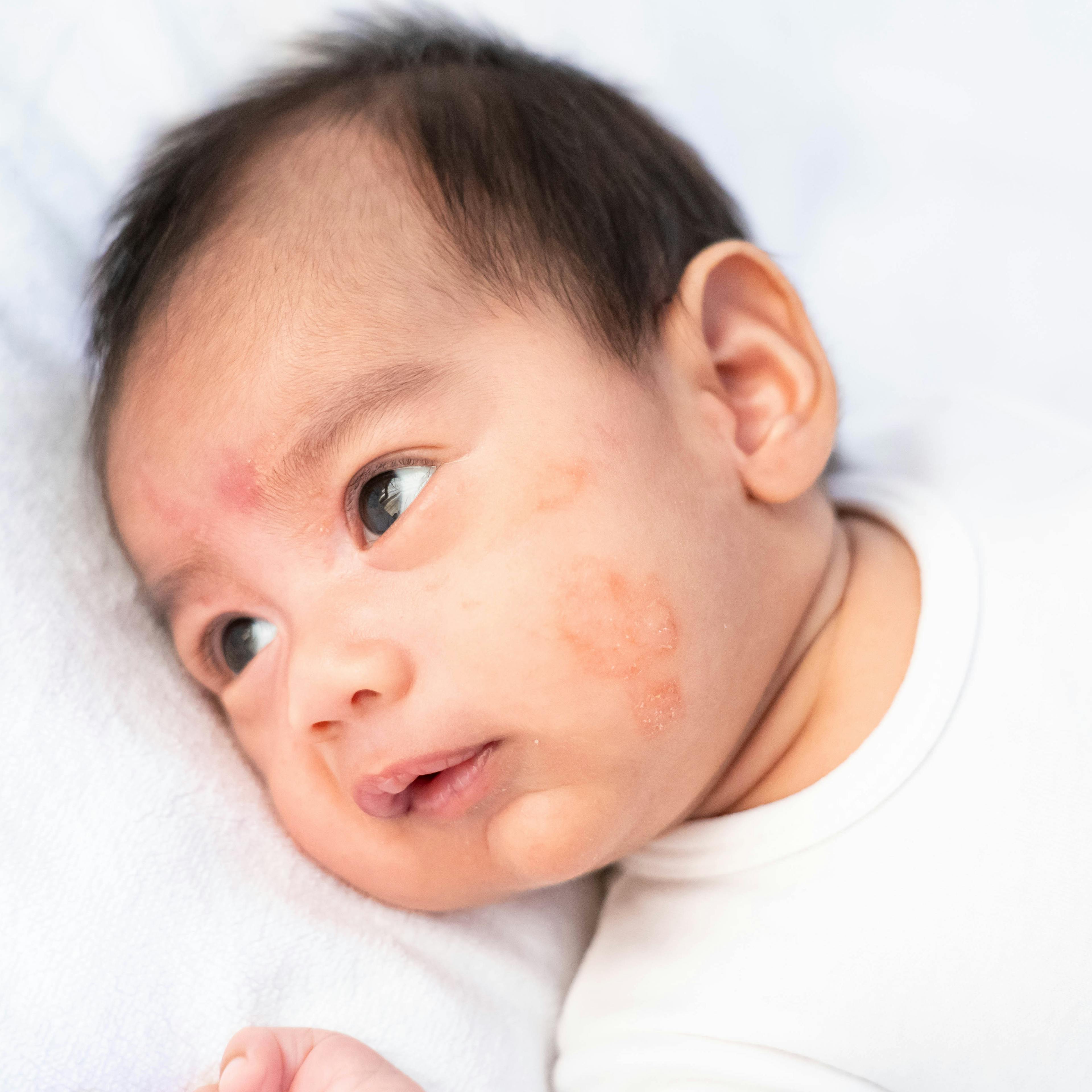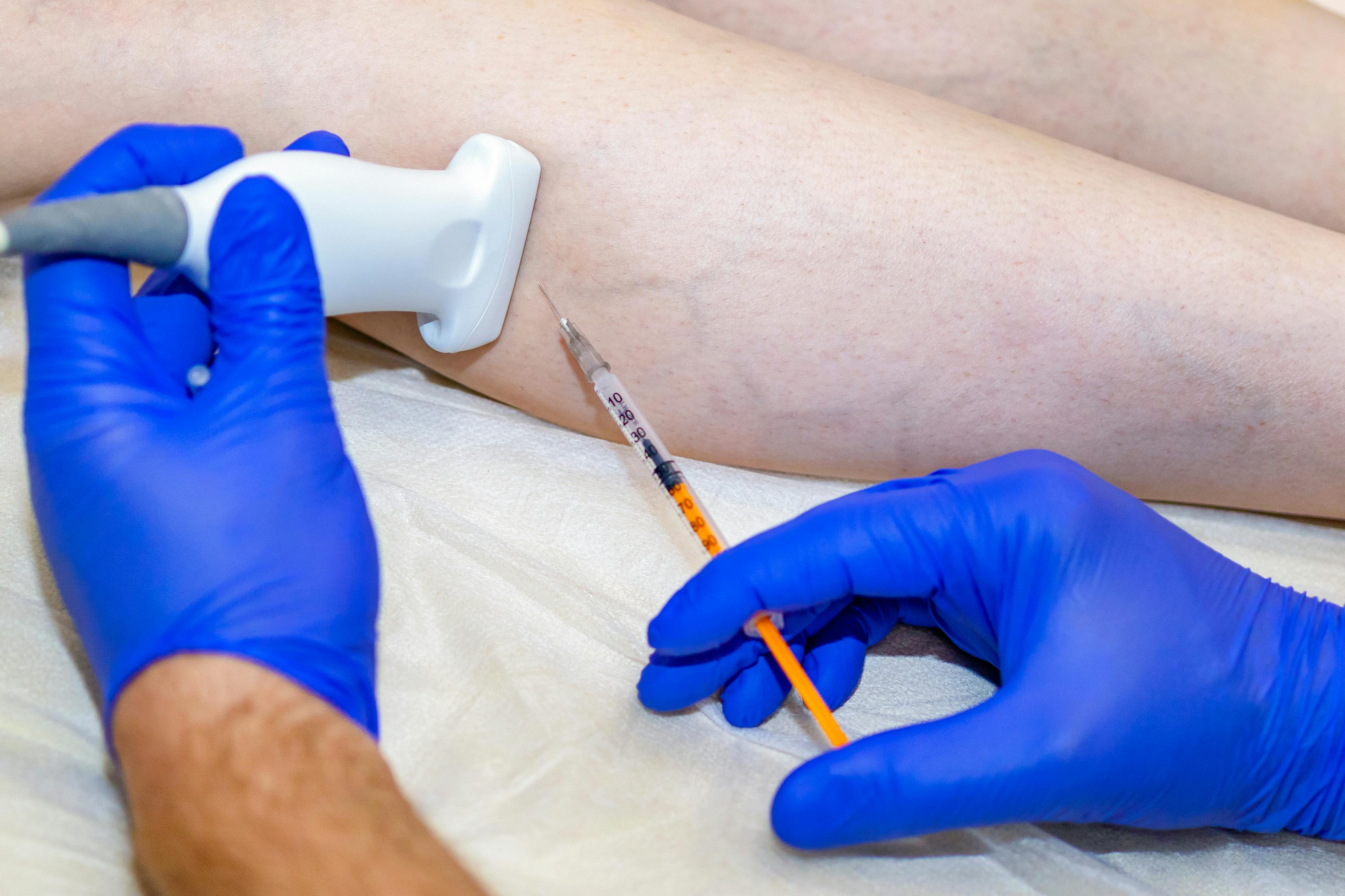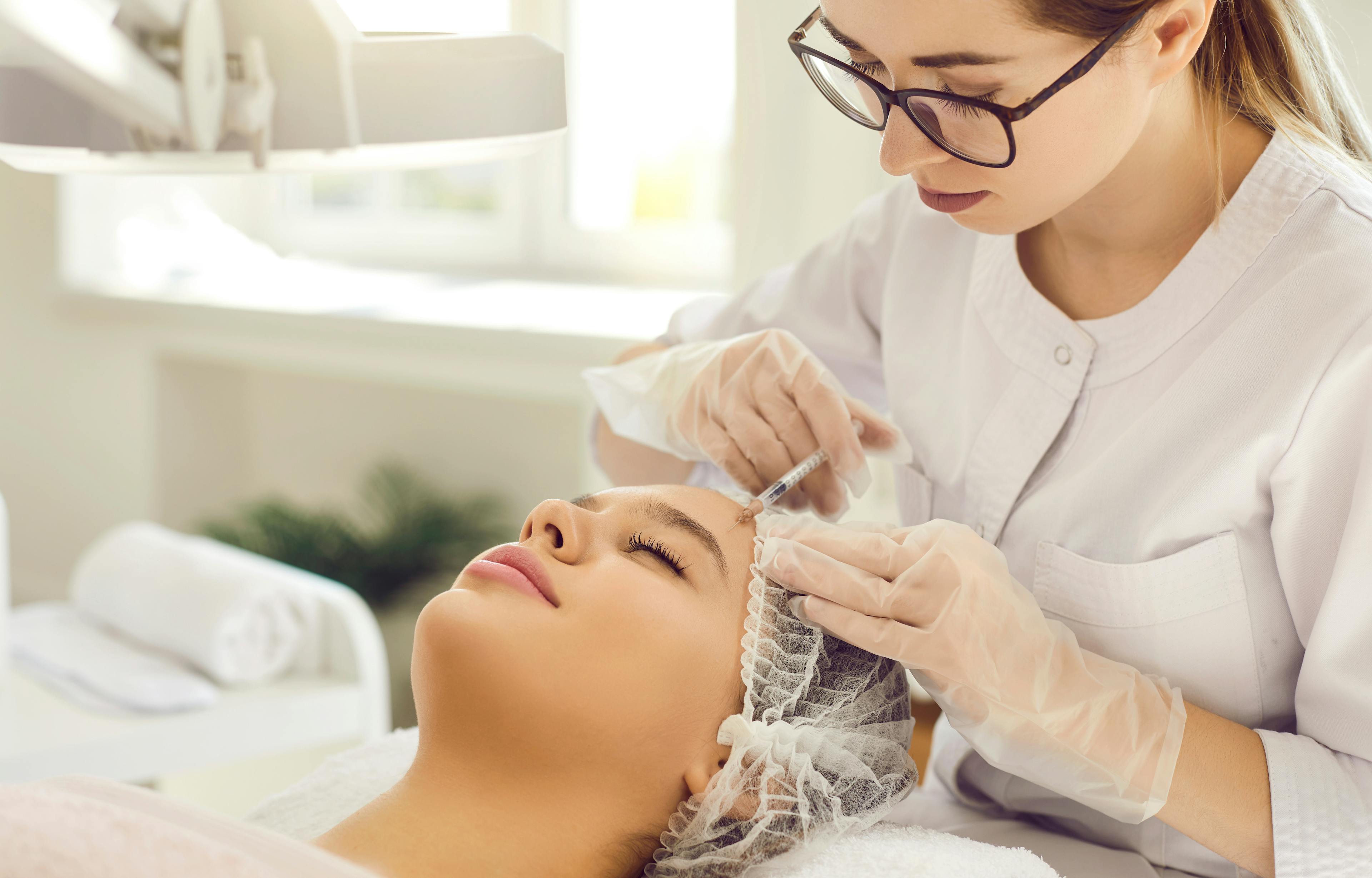Warts are small, non-cancerous skin growths caused by the human papillomavirus (HPV). They can appear anywhere on the body, spread easily, and may become uncomfortable or long-lasting without treatment. This page explains what causes warts, how they spread, common symptoms, and the treatment options available from dermatologists in the Houston area.
What Are Warts?
Warts develop when HPV enters the skin through tiny openings—such as cuts, cracks, or weakened areas—and triggers rapid skin cell growth. There are multiple HPV strains, each associated with different wart types, locations, and appearances.
Because warts can look similar to corns, calluses, skin tags, or other lesions, a dermatologist’s evaluation is important to ensure accurate diagnosis and proper treatment.
Symptoms of Warts
Wart symptoms can vary by type, but common signs include:
- Rough, raised bumps that may be skin-colored, brown, or gray
- Small black dots (“wart seeds”), which are clotted blood vessels
- Pain or tenderness when pressed—especially on the feet
- Single or clustered growths that vary in size
- Texture that may be rough, smooth, grainy, or cauliflower-like
How Long Do Warts Last?
Some warts disappear within months, while others—especially in adults—can last years without treatment. Because HPV can spread to new areas or to other people, early treatment helps reduce transmission and may shorten the duration of symptoms.
Causes and Risk Factors
HPV thrives in warm, humid environments and spreads easily.
How Warts Spread
- Direct skin-to-skin contact
- Touching contaminated surfaces such as gym mats, pool decks, or locker room floors
- Sharing razors, towels, socks, or nail tools
- Nail biting or picking at existing warts
Risk Factors
You may be more likely to develop warts if you:
- Are a child or teenager
- Have a weakened immune system
- Frequently get small cuts or abrasions
- Walk barefoot in public showers, pools, or locker rooms
- Live in warm, humid climates like Houston, where HPV survives longer on surfaces
Types of Warts
Understanding the type helps guide treatment.
- Common warts: Rough bumps on hands, fingers, or around nails
- Plantar warts: Hard, flat growths on the soles of the feet; may cause pain when standing or walking
- Flat warts: Smaller, smoother bumps often appearing in clusters on the face, arms, or legs
- Genital warts: Soft growths caused by sexually transmitted HPV strains and require specialized evaluation
Diagnosis
Most warts are diagnosed through a simple exam. If a wart grows quickly, changes in appearance, or fails to improve with treatment, a dermatologist may perform a small biopsy to confirm the diagnosis and rule out other skin conditions.
Wart Treatment Options
While some warts resolve on their own, many patients choose treatment to improve comfort, reduce spreading, and restore clear skin. Dermatologists may recommend the following options:
Cryotherapy
Freezes the wart with liquid nitrogen, destroying abnormal tissue over a few treatment sessions.
Salicylic Acid Treatments
A topical medication that softens and gradually removes wart layers. Often used for common and plantar warts.
Laser Therapy
Uses targeted light to seal off the blood vessels feeding the wart, causing it to shrink and disappear.
Electrosurgery and Curettage
In-office procedures that burn and remove the wart when other treatments are ineffective.
Immunotherapy
Triggers your immune system to recognize and fight stubborn or recurring warts—especially helpful for warts that resist standard treatment.
Treatment Comparison Table
Your dermatologist will choose the most appropriate option based on the wart’s type, size, and location.
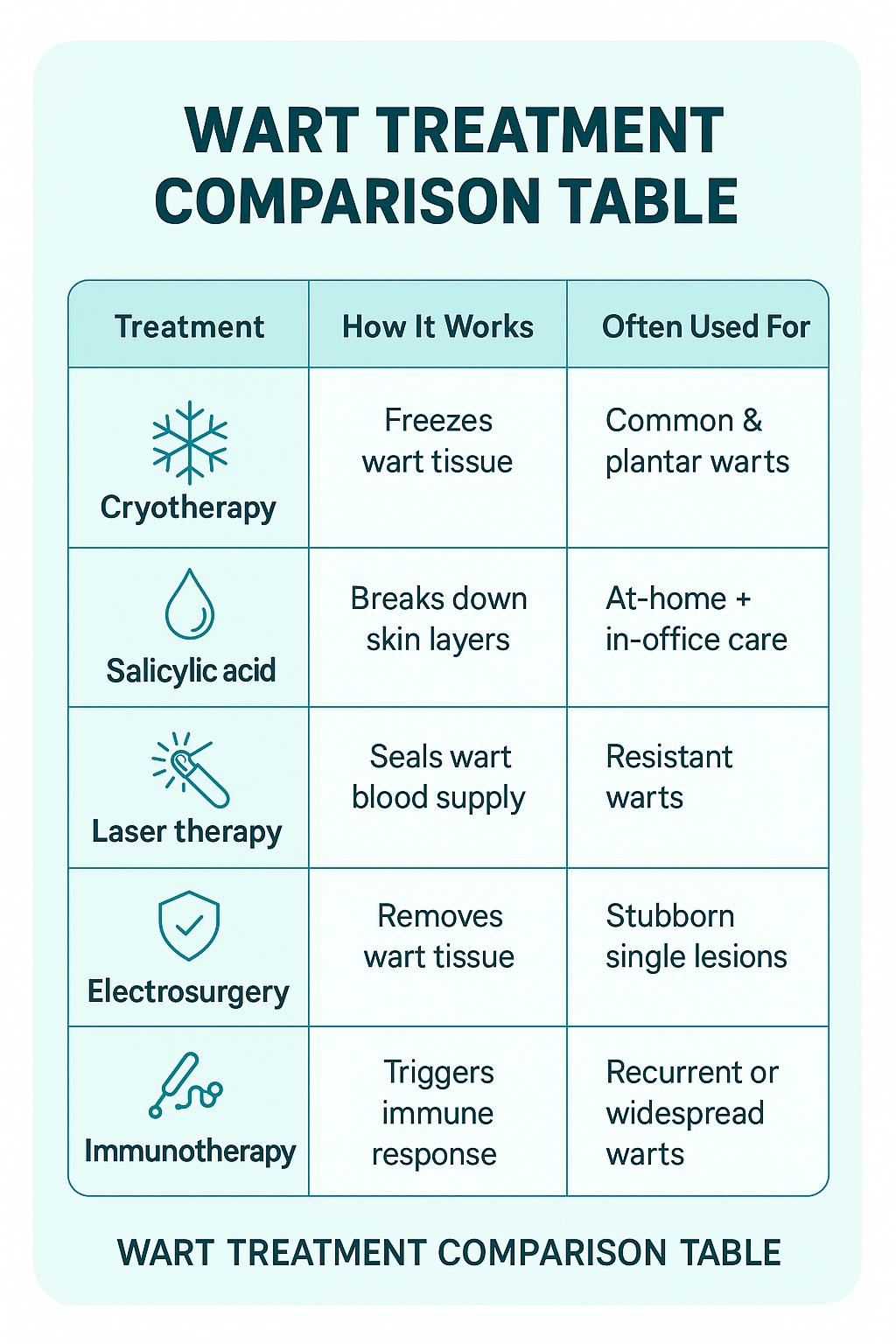
Prevention Tips
- Avoid picking or scratching warts
- Wear flip-flops or footwear in public pools, showers, and locker rooms
- Do not share razors, socks, towels, or nail tools
- Keep cuts clean, dry, and protected
- Wash your hands often and avoid touching existing warts
See a Dermatologist for Wart Removal in Houston
If your warts are painful, spreading, or persistent, our dermatologists can help. With careful diagnosis and targeted removal options, warts can often be treated safely while reducing the chance of recurrence.
Schedule a dermatology appointment today.
